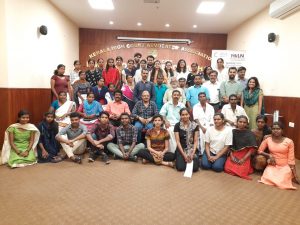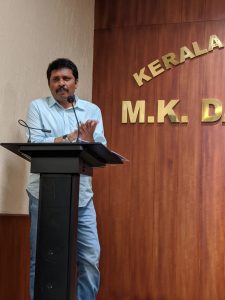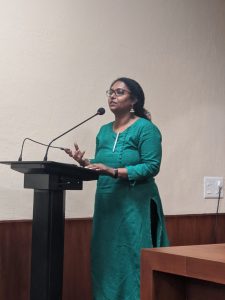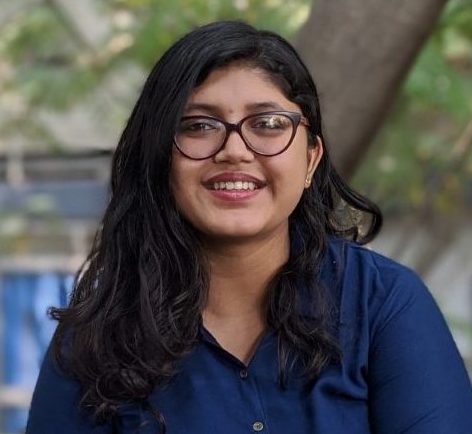
On 28th February 2020, CLPR organized a workshop for civil society organisations on ‘Tackling Caste Discrimination through Law’ in Ernakulam in association with the Human Rights Law Network (HRLN). The day was divided into two sessions, – (i) An introduction to the Scheduled Castes and Scheduled Tribes (Prevention of Atrocities) Act, 1989 (PoA Act) and the Protection of Civil Rights Act 1955 (PCRA) and (ii) group activity.

The first session on the PoA and PCRA was led by Kathir, Director of Evidence in Madurai. He talked about the difference between caste-based and racial discrimination. He emphasised that the persistence of caste discrimination in India is due to the prevalent mind set and gave examples of caste discrimination practiced in Tamil Nadu – the two tumbler system, discrimination in the activities related to the temple, and separate burial grounds. Kathir then took the participants through the laws in place for abolishing caste discrimination. He referred to Articles 14-17 of the Indian Constitution, the history behind the enactment of the PCRA and the PoA Acts, which are the primary legislations that protect the rights of the SC/ST community. The objectives, special features, implementation issues, monitoring mechanisms and amendments of the PoA Act was extensively discussed.

The second speaker was Dr. Rekha Raj, Assistant Professor of MG University. She focused on the issues of the intersection of caste and gender discrimination. She discussed that although caste-discrimination may not manifest itself expressly in Kerala, subtle-caste based practices are still present. She insisted that in cases of gender discrimination, other social forces also must be assessed rather than analyse the discrimination in a gender vacuum. She compared the cases of Bilkis Bano with the Nirbhaya rape case and discussed how our conception of the ‘ideal victim’ might influence our responses.She specifically talked about the gender discrimination faced by Dalit women in the form of forced sterilization under Sanjay Gandhi in the 1980s, systemic violence, poverty, and prevalence of manual scavenging among several atrocities.
The two speakers later engaged in an interesting dialogue with the participants and also answered the several questions that were brought up at the end of the discussion.

The last session of the workshop was a group activity geared towards familiarizing the participants of the laws available for their protection, the procedures in place and the steps they can take when faced with instances of discrimination. The group activity consisted of five different case studies which ranged from the atrocities listed in the PoA to the PCRA legislations. The aim of the activity was to empower the participants to better understand the laws in place for their protection so that they would utilize the same going forward. For that purpose, the case studies focused on strengthening their understanding of and familiarity with the law. The participants were divided into 5 groups where they were given 45 minutes to discuss the issues. At the end of this, one or two members from each group presented their views along with the relevant provisions of law.
If you are interested in being part of the network and practice in any of the four South Indian States, do write to us at deekshitha.ganesan@clpr.org.in or admin@clpr.org.in.

